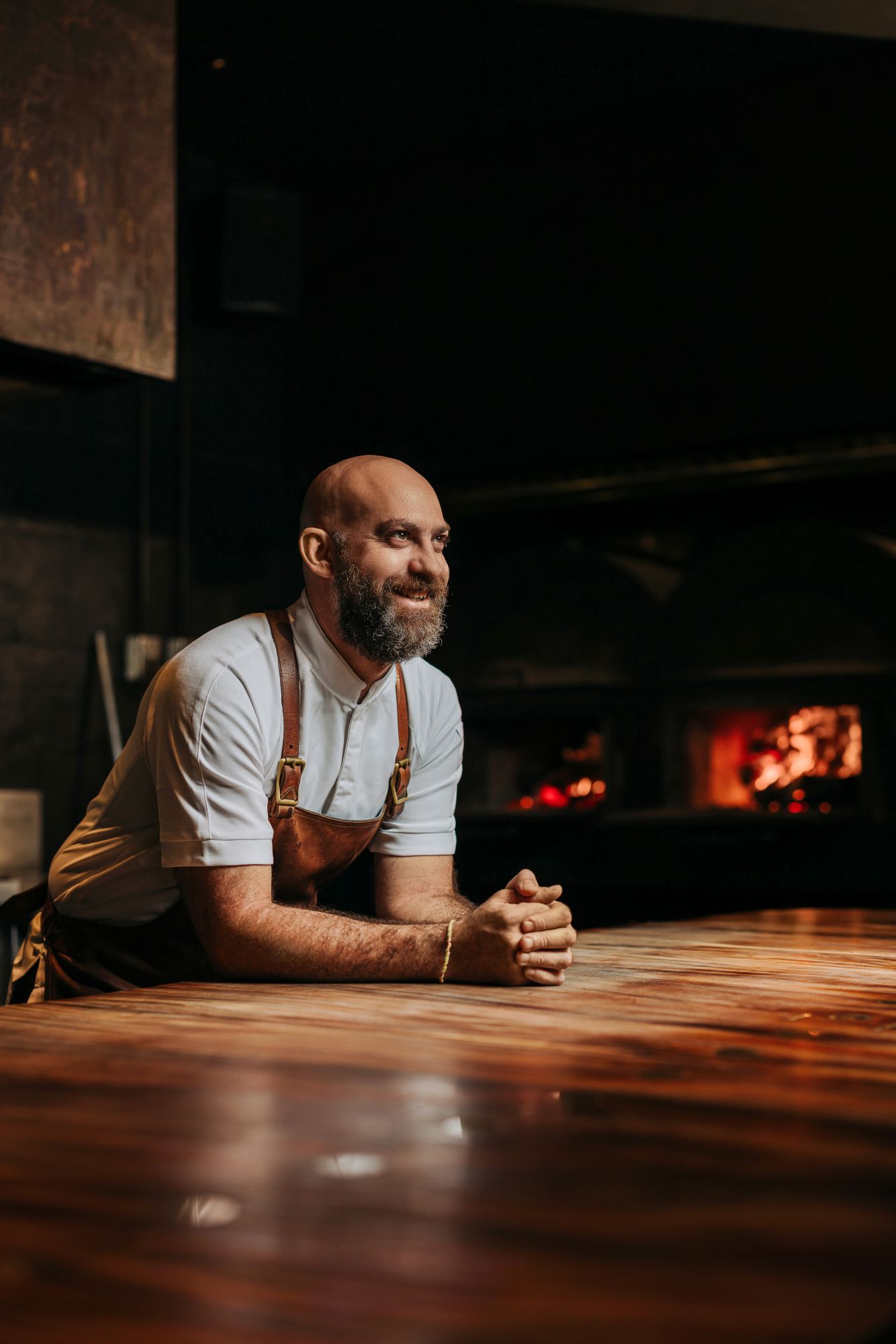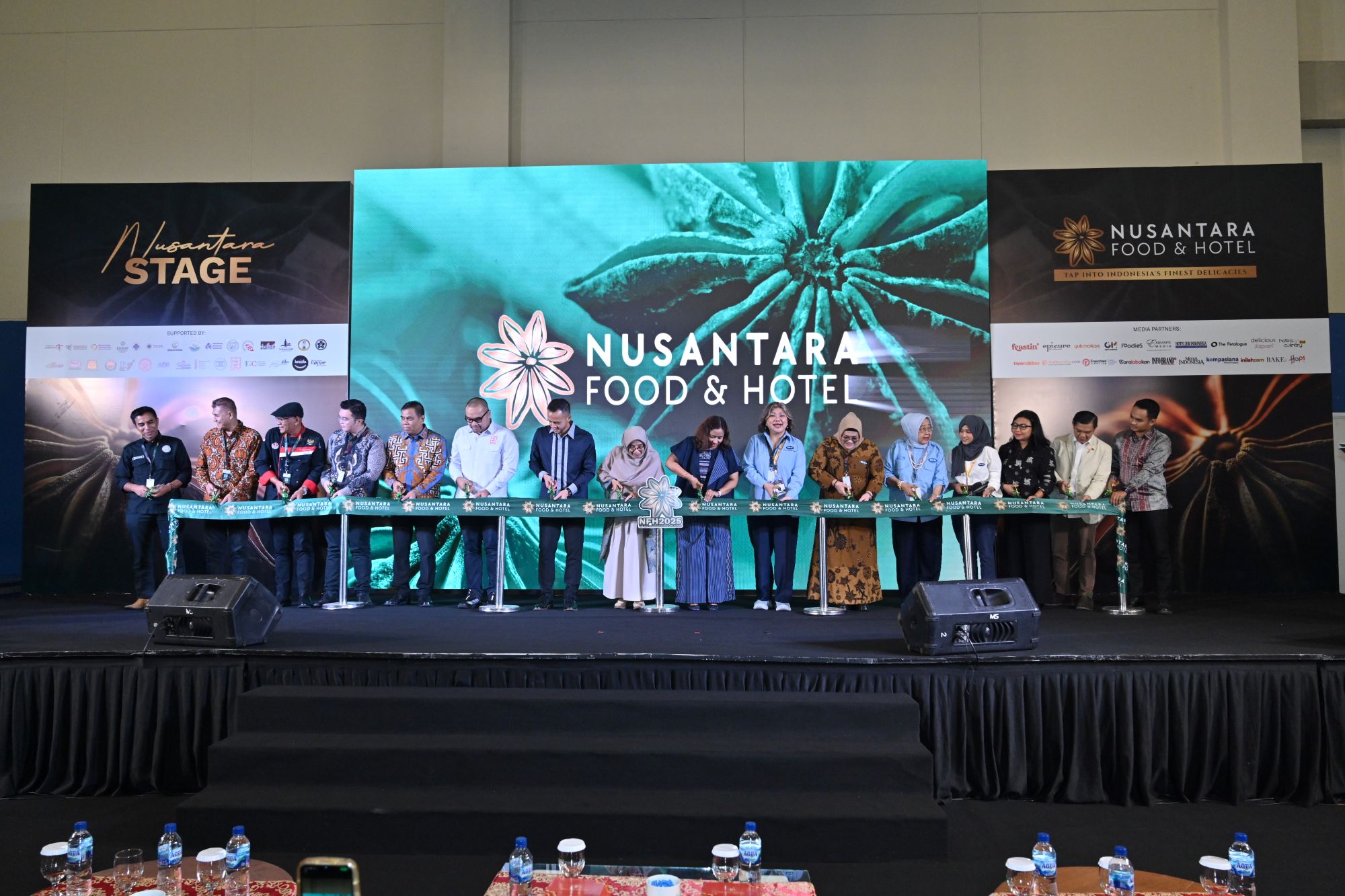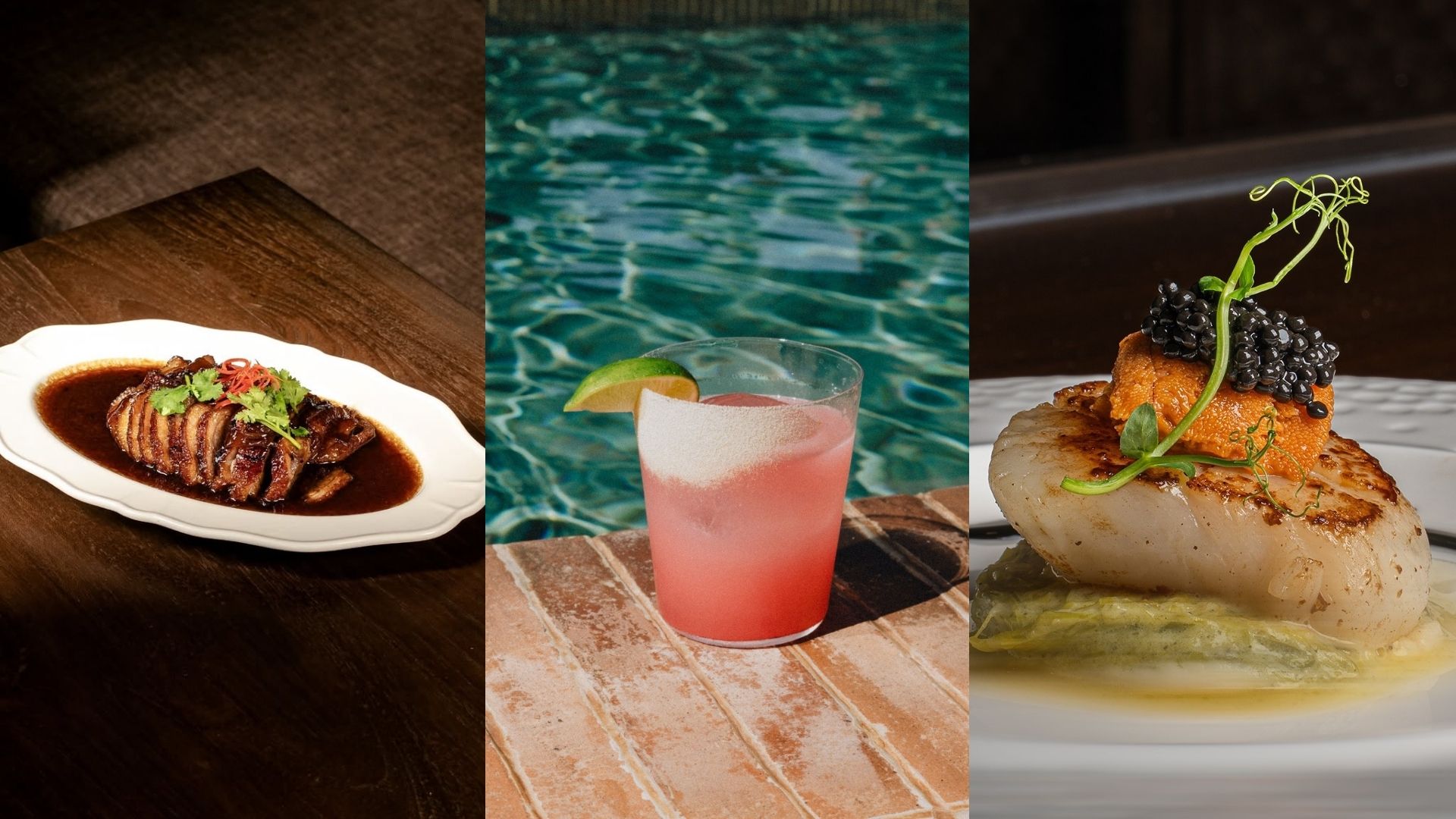“Everything is related. From the ingredients to the food served, and then to the human senses.” This is according to Seasalt’s new chef de cuisine, Muhammad Hazwan bin Md Hamdan, or simply called, Chef Haz.
He shares his process of creating dishes, where he not only thinks about his own journey but more importantly, takes the time to get to know the diners at Seasalt. He creates dishes that engage the human senses, such as the Coconut Prawn Soup, which is aesthetically served, with a hint of chili oil, that leaves guests licking their lips and seemingly wanting more.
“The sense of smell, sight, taste, and even the touch on the lips, with the sound of the waves, all senses are engaged,” he said smilingly.
“From the food ethics (how people eat) to food chemistry (ingredients), to the food (dish), to the human senses.” Chef Haz hopes to achieve this multisensory dining in Seasalt, Alila Seminyak’s signature restaurant.
And this is Chef Haz in a nutshell—thinking about food chemistry and food ethics while he prepares his food, continuously learning, collecting interesting vintage items in his free time, and incorporating Nouvelle cuisine in creating dishes—he is like a scientist in the kitchen.
He is a chef who greets his guests, always with a smile, and habitually stands at the corner of the restaurant at 6 pm to catch the glimpse of the sunset and to witness the waves of guests coming in the door. This habit allows him to learn about his guests and gives him a 360-degree view of what goes on in the restaurant—another learning experience for him. He is an intellectual chef with a thirst for knowledge and is in constant pursuit of challenges.
As the fourth child of five siblings, Chef Haz grew up with his mother’s cooking. Growing up in the countryside of Ipoh, Malaysia (the same town as Michelle Yeoh’s family), he was exposed to agriculture at an early age. With his father as a landscaper and his mother growing lemongrass and other herbs, fresh ingredients were a big part of his childhood.
However, the main influence in his culinary career was his grandfather, a land officer who would often take Chef Haz on hunting trips in Ipoh. “During those hunting trips, I was curious about everything. The water, the food, the trees. My grandfather taught me a simple allergy test—rub a leaf onto your skin and if there is no reaction then it is safe to eat.”
He also shares his love for knowledge, even as a child. He would go to the local library to read, and he would read on topics about the “History of Culinary,” and grew more and more curious. After earning his culinary diploma and degree in Malaysia, he was not satisfied. And so, he pursued further studies in Toulouse, France where he finished his Bachelor of Arts degree in Culinary Arts.
While studying, he made sure that he did part-time jobs in different types of kitchens. He believes going on the single track of fine dining would limit his knowledge and experience, so he worked in a commercial Malay kitchen, independent hotels, and cooked for caterings to combine his theoretical learning with practical experience.
After a short stint as a Line Cook at L’Heritage in the Royal Chulan Hotel in Kuala Lumpur, Chef Haz then went to work in New Orleans, in the United States, to expand his experience in French cooking. “I chose to work in this city because of the culture, the essence, the menu—they still practice French.”
He first worked at Stella, a modernized French restaurant located in the neighborhood of the French Quarter, spearheaded by Chef Scott Boswell. After a year, he then moved to Restaurant August, a classic French venue, this time as Chef De Partie.
“I want to grow and learn, and I want to go somewhere where I can learn the fundamentals of culinary, and that’s why I chose to work in French restaurants,” he shares.
He then moved back to Malaysia in 2016 to help his parents set up their farm, and while there, he joined Thirty8 Restaurant on the 38th floor of Grand Hyatt Kuala Lumpur where he worked for three years. He also joined Hyatt’s chef’s competition, where he won gold to represent Southeast Asia in Grand Hyatt Singapore, and in the Asia Pacific round, he won 2nd runner-up.
As the owner of Grand Hyatt KL (the king of Brunei) noticed his talent, he was commissioned to work at Park Hyatt Doha, first handling the In-Room Dining of the hotel, and moving up the ranks until he eventually became Chef De Cuisine at Park Hyatt Doha.
Never wanting to settle in his comfort zone, he decided to find other opportunities. And after 3 years, he left Doha, just 8 days before the famous FIFA World Cup 2022 in Qatar.
“At one point I tell myself, I need to sacrifice as a father of two sons,” and so he came to Bali at the end of October 2022, where he was amazed by the “strong sourcing of ingredients,” very different from his previous experience in the Middle East.
“As a meat person, coming to Bali is different for me. Seasalt is a seafood restaurant with a Japanese touch. It’s a challenge for me. We do use premium seafood like abalone and sea cucumber, but it’s different to work from the land to the sea.”
In the short time that Chef Haz officially joined Seasalt in early 2023, he has introduced a few things such as the Nikkei cuisine, which is Peruvian Japanese, one that he attributes to his experience in New Orleans. In the Seasalt kitchen, he also introduced the Nouvelle cuisine, “a modern French technique related to using machines to infuse flavors.”
As part of Alila Hotel’s drive for sustainability, they also dry age our fish and meat, according to the chef. He also shares that 98% of Seasalt’s seafood is locally sourced, a drive to help the community. The remaining 2% allows for premium produce of scallops and uni, sourced from Japan.
With a conscious effort to achieve zero waste, Chef Haz’s kitchen maximizes the use of every ingredient. “It is very difficult to achieve zero waste. It is impossible, but nothing is impossible. Sustainability is very important because this is for the next generation.” As a father of two sons, Chef Haz remains conscious of minimizing waste in the kitchen, not only for him but for the next generation.
Chef Haz is proud to serve the Skipjack Tuna Tataki, using the ‘chutoro’ part of the tuna, providing a perfect mix of meaty and fatty texture. Another is the Orange & Aged Hamachi, uniquely prepared with a special citrus sauce from freshly squeezed orange juice that is reduced and emulsified with olive oil and mustard.
He describes his style of cooking as “one with nature,” playing around with the food and ingredients that surround him. He recently introduced the plating of meats in hot stone to incorporate a sense of nature into his dish. He also uses the mundane leaf daun Ketapang, an ingredient that reminds him of childhood.
Diners are indeed fortunate to have an abundance of fresh produce on the Island of the Gods. Chef Haz serves as the bridge between nature and the guests of Seasalt, providing a multisensory experience that is different from the typical beachside establishment. For diners who are looking for more than food, it’s definitely a journey for the senses at Seasalt.









